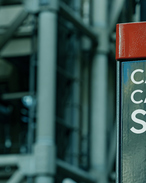This article is 9 years old. Images might not display.
The lift defied a 9.4% drop in crude oil and a 4.4% drop in the valuations of West Australian ASX-listed companies.
Deloitte noted that crude oil fell by 9.4% in November amid continuing concerns of a global surplus and the persistent threat of future interest rate increases, a strong US Dollar and passive economic growth.
With nothing having materially developed in November for Woodside, the market clearly approved of commentary that it would not increase its Oil Search all-scrip offer, something that was confirmed when Woodside announced last week it had officially walked away from the bid.
"Our concern was that they may end up paying too much, because if they pay too much of a premium then you're pricing in growth that hasn't yet been de-risked; and when [Woodside] announced they had walked away from Oil Search it re-affirmed out positive view," Morgans Financial senior analyst Adrian Prendergast told Energy News.
"It does show that, while the bid was puzzling strategically for us, at least they maintained good corporate discipline in walking away and not being dragged higher - which is consistent with what they've been reassuring the market.
"So they get points for that consistency."
The only thing Woodside announced to the Australian Securities Exchange in November was a change of director's interest notice for Frank Cooper, Christopher Haynes, Andrew Jamieson and Sarah Ryan, but market commentary was buzzing with speculation it was persisting with its Oil Search chase or finding alternate ways to get to the highly regarded PNG LNG project in its portfolio.
Woodside itself helped keep those rumours alive.
On October 27, Woodside put a correction on the ASX boards correcting a Dow Jones wire service report that said "Woodside Petroleum has no intention of adjusting its $US8.3 billion bid for Oil Search Ltd, as the proposal was ‘fair and fully priced', its chief executive officer Mr Peter Coleman said".
The company clarified that Coleman did say that Woodside's proposal was "fair and fully priced", but he did not repeat the rest of the statement.
This led to speculation that its Oil Search chase would not be over, and there were reports that Coleman had taken trips to Papua New Guinea to try alternative ways to get at the PNG LNG project, like buying the PNG government's stake - something the government was never going to do if it had any long-term vision.
But this all amounted to rumours and scuttlebutt, as the market seemed more interested in Santos' efforts to reduce its $8.8 billion debt mountain.
US LNG developer Liquefied Natural Gas Limited's market cap also shrank last month from $752 million to $589 million despite positive developments for its Magnolia LNG project in Louisiana.
Also down was China-focused Sino Gas & Energy Holdings's valuation, from $180 million to $168 million, on news of lower Chinese gas prices.
Carnarvon Petroleum suffered only a slight drop from $119 million to $115 million, probably due to support from shareholders keen to see the results of the Roc-1 well.
Canning Basin player Buru Energy dropped from $104 million to $80 million thanks to a number of dusters and the lower oil price.
Unaffected by oil prices, Carnegie Wave Energy rose from $88 million to $96 million, while on the contracting side of the oil patch, Monadelphous Group dropped from $647 million to $581, Decmil Group rose fractionally from $157 million to $158 million, and struggling MMA Offshore plummeted from $157 million to $86 million.






















